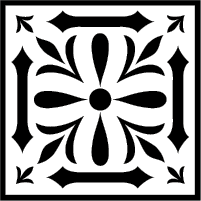Example Code
//Hardware constants
const int PASPin = 2; // input from PAS
const int ledPin = 13, PWMOut=11; // the pin that the LED is attached to and the PWM output pin
//Software constants
const unsigned long activityTimeoutMS = 500; // Allowed PAS signal inactivity time before turning off
const int startPulses = 2; // Number of PAS pulses needed before turning on
const int lowPWMValue = 56, highPWMValue = 170; // PWM values to drive throttle input, default 56 (1,1 V) and 170 (3,4 V), U=n/255*5V, n=U/5V*255
// Variables
volatile int inputEdges = 0; // counter for the number of pulses since last reset
volatile unsigned long lastEdgeTime = 0; // timestamp of last PAS pulse
bool state=false; // variable holding information about the state of the output
void setup() {
pinMode(PASPin, INPUT); // initialize the PAS pin as a input
attachInterrupt(digitalPinToInterrupt(PASPin), pulse, RISING); //Each rising edge on PAS pin causes an interrupt
pinMode(ledPin, OUTPUT); // initialize the LED as an output
pinMode(PWMOut, OUTPUT); // initialize the PWM pin as an output
}
void loop() {
//If PAS signal is inactive for too long, turn off everything
unsigned long curTime=millis();
if ((curTime>lastEdgeTime)&&((curTime-lastEdgeTime)>activityTimeoutMS)) {
turnOff();
}
//If system is off, check if the impulses are active
if ((!state)&&((millis()-lastEdgeTime)<activityTimeoutMS)) {
//if impulses are active, check if there were enough pulses to turn on
if (inputEdges>startPulses) {
turnOn();
}
}
//Use LED for status info
digitalWrite(ledPin, state);
}
//Turn off output, reset pulse counter and set state variable to false
void turnOff() {
noInterrupts();
analogWrite(PWMOut, lowPWMValue);
inputEdges=0;
state=false;
interrupts();
}
//Turn on output and set state variable to true
void turnOn() {
analogWrite(PWMOut, highPWMValue);
state=true;
}
//Interrupt subroutine, refresh last impulse timestamp and increment pulse counter (until 10000 is reached)
void pulse() {
lastEdgeTime=millis();
if (inputEdges<100) {
inputEdges++;
}
}
